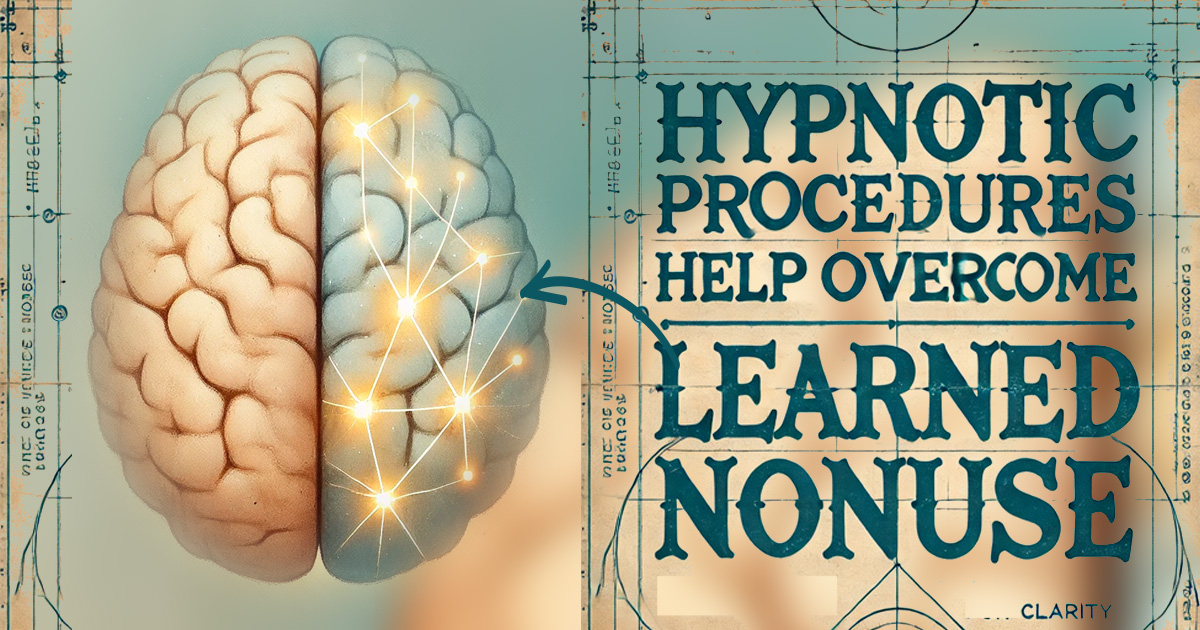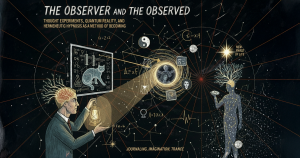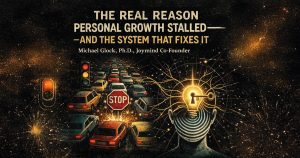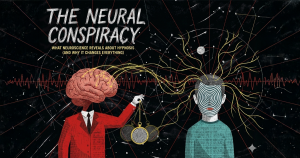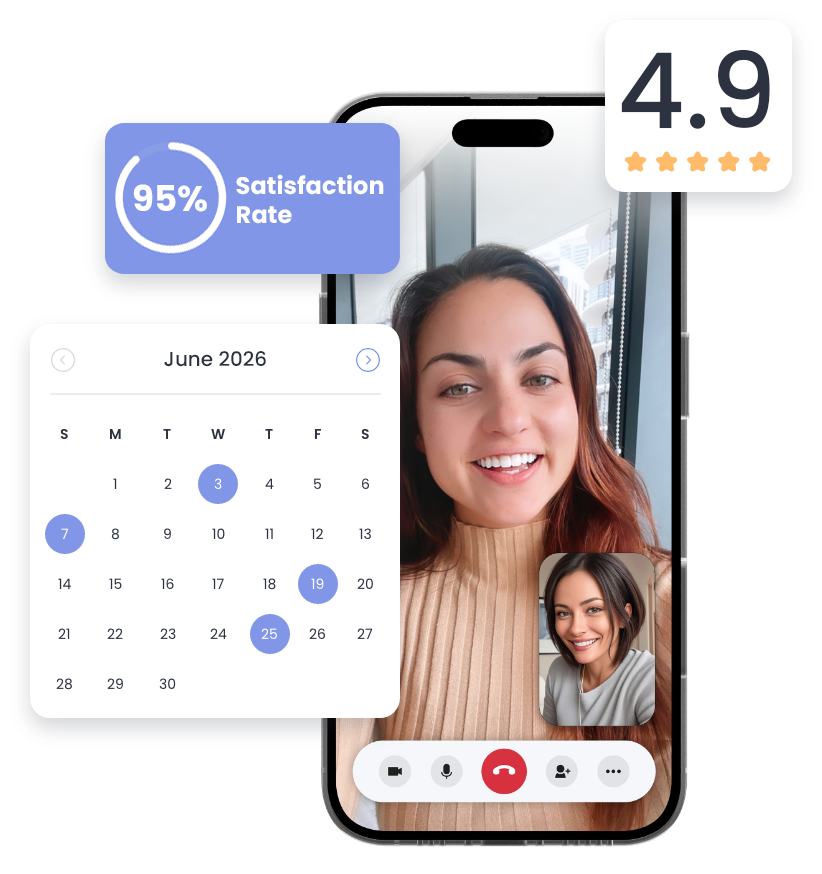How Science Backs This Groundbreaking Approach
Recovering from a stroke can feel like an uphill battle. It’s not just about regaining movement—it’s about reclaiming independence, confidence, and quality of life. Traditional rehabilitation methods like physical and occupational therapy are essential, but did you know that hypnotherapy is emerging as a powerful, science-backed tool to support recovery?
If you’re skeptical, you’re not alone. Many people dismiss hypnosis as just “mind tricks.” But the truth is, research shows that hypnotherapy actively stimulates the brain’s ability to heal by enhancing neuroplasticity—the brain’s way of rewiring itself. This means hypnosis isn’t just a feel-good practice; it’s a legitimate therapeutic approach that can help stroke survivors regain mobility, manage pain, and improve emotional resilience.
How Hypnotherapy Helps Stroke Survivors Recover
Hypnotherapy works by guiding you into a deeply focused state where your brain becomes more receptive to healing and learning. Through visualization, guided mental exercises, and cognitive restructuring, hypnosis can:
-
Activate dormant neural pathways to help restore lost motor function.
-
Enhance motivation to engage in rehabilitation exercises.
-
Reduce chronic pain by retraining the brain’s pain response.
-
Lower stress and anxiety, improving emotional well-being.
A groundbreaking study by Diamond et al. (2006) found that stroke patients who used hypnosis alongside traditional rehabilitation showed improvements in grip strength, limb mobility, and motivation—even after their progress had plateaued with conventional therapy alone.
Rewiring the Brain: The Power of Neuroplasticity
Your brain has an incredible ability to rewire itself after injury—a process called neuroplasticity. The key to stroke recovery is encouraging the brain to create new neural connections to take over functions lost due to brain damage.
Studies show that visualizing movement in hypnosis activates the same brain regions as actual movement (Page, Levine, & Leonard, 2007). In other words, when you imagine lifting your arm or walking, your brain practices those actions and strengthens the neural pathways needed to regain control.
Dr. Michael Glock, a clinical hypnotherapist and stroke survivor, has developed a specialized hypnotherapy recording, “Rebuild Your Neural Network,” available on Joymind. This guided hypnosis session helps stroke survivors visualize functional movements, encouraging the brain to rebuild connections and restore motor function.
Managing Post-Stroke Pain Without Medication
Chronic pain after a stroke is common, but it doesn’t have to be a lifelong struggle. Research using brain imaging techniques like fMRI and PET scans shows that hypnosis modifies how the brain processes pain (Apkarian, 2011). It works by shifting brain activity away from pain centers and engaging the prefrontal cortex, which helps regulate pain perception.
A meta-analysis by Jensen, et all., (2014) confirmed that hypnosis significantly reduces chronic pain intensity in stroke survivors and other neurological conditions—offering a drug-free, non-invasive solution for pain management.
More Than Just Physical Recovery: Hypnotherapy and Emotional Well-Being
Recovering from a stroke isn’t just about the body; it’s also about the mind. Many stroke survivors experience depression, anxiety, and frustration as they adjust to life after their stroke. Hypnotherapy helps by:
-
Reducing Anxiety and Depression – Guided relaxation techniques help regulate stress hormones, leading to greater emotional stability.
-
Boosting Motivation and Confidence – Hypnosis fosters a greater sense of control, making it easier to stay committed to recovery.
-
Encouraging Emotional Resilience – By reframing negative thought patterns, hypnosis promotes a more positive outlook on rehabilitation.
In the study by Diamond et al. (2006), patients who received hypnosis alongside therapy showed greater persistence, confidence, and engagement—key factors in making real progress.
The Future of Stroke Rehabilitation: Why Hypnosis Is Worth Considering
If you or a loved one has had a stroke and feel stuck in the recovery process, hypnotherapy might be the missing piece of the puzzle. Science backs its effectiveness, and countless stroke survivors have used hypnosis to regain strength, reduce pain, and rebuild their lives.
Dr. Michael Glock’s specialized hypnotherapy program at Joymind offers a structured approach to stroke recovery, combining cutting-edge research with practical, guided hypnosis sessions.
Ready to Explore Hypnotherapy for Stroke Recovery?
If you’re curious but still skeptical, why not try it for yourself? Hypnotherapy is a non-invasive, drug-free, and science-backed tool that could make all the difference in your recovery journey.
For a free consultation with a Joymind Expert, call (888) 614–3480 or visit Joymind to learn more.
Key Takeaways:
-
Hypnotherapy stimulates neuroplasticity, helping the brain form new connections for movement recovery (Diamond et al., 2006).
-
Mental imagery under hypnosis activates motor pathways, making it an effective complement to physical therapy (Page et al., 2007).
-
Hypnosis helps manage chronic pain by rewiring how the brain processes pain signals (Apkarian, 2011).
-
Emotional resilience and motivation improve when hypnosis is part of rehabilitation, leading to better adherence and recovery outcomes.
References
-
American Stroke Association. (2021). Stroke facts. Retrieved from https://shorturl.at/gfgtx
-
Apkarian, A. V. (2011). The brain in chronic pain: Clinical implications. Pain Management, https://shorturl.at/BRmXo
-
Diamond, S. G., Davis, O. C., Schaechter, J. D., & Howe, R. D. (2006). Hypnosis for rehabilitation after stroke: Six case studies. Contemporary Hypnosis, https://shorturl.at/riJ2u
-
Jensen, M. P., Patterson D. R., (2016). Hypnotic approaches for chronic pain management: clinical implications of recent research findings. https://shorturl.at/Vtfoc
-
Page, S. J., Levine, P., & Leonard, A. (2007). Mental practice in chronic stroke: Results of a randomized, placebo-controlled trial. Stroke. https://shorturl.at/6T8HL

